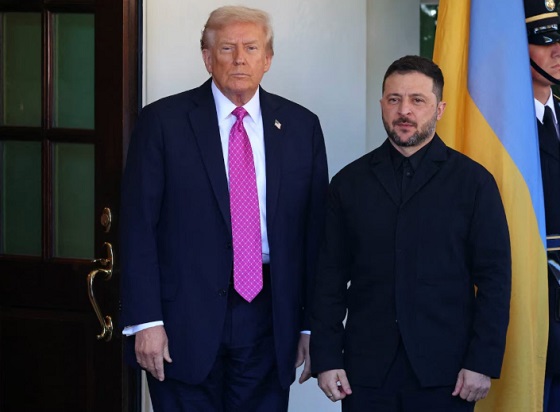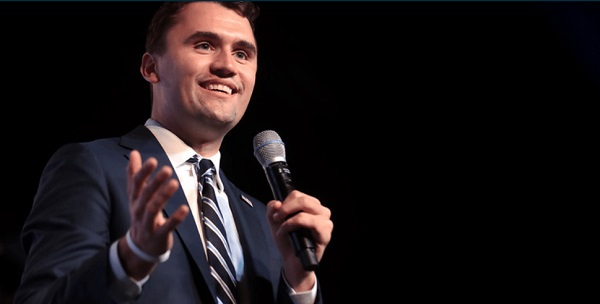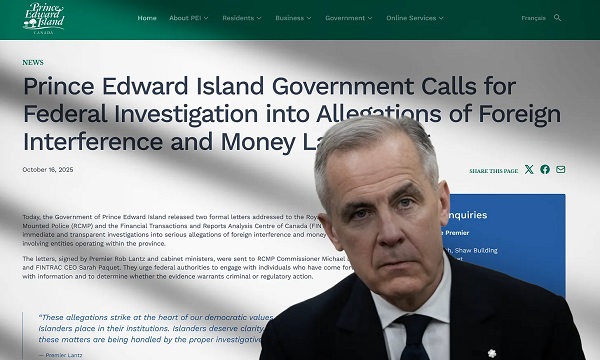International
Germany launches first permanent foreign troop deployment since WW2

 MxM News
MxM News
Quick Hit:
Germany activated a 5,000-strong armored brigade in Lithuania — marking its first permanent foreign military deployment since World War II. The move strengthens NATO’s eastern flank amid Ukraine’s ongoing conflict with Russia.
Key Details:
- The 45th Armored Brigade was formally launched outside Vilnius on Tuesday.
- Germany plans for the brigade to be fully operational by 2027 in Rūdninkai, near the Belarus border.
- The deployment marks a major policy shift for Berlin and a boost for NATO’s deterrence posture.
Diving Deeper:
Germany has officially entered a new era of military engagement, launching its first permanent foreign troop deployment since the end of World War II. The move, announced Tuesday, sees the activation of a 5,000-strong armored brigade in Lithuania as part of a broader NATO strategy to counter the perceived threat from Russia.
The newly formed 45th Armored Brigade was ceremonially inaugurated outside the Lithuanian capital, Vilnius. German Brigadier General Christoph Huber assumed command, overseeing the establishment of a temporary headquarters and unveiling the unit’s crest. “We have a clear mission: to ensure the protection, freedom and security of our Lithuanian allies on NATO’s eastern flank,” Huber said, adding that the unit’s presence also directly contributes to the defense of Germany and NATO as a whole.
The deployment follows a pledge made by Berlin in 2023 — a decision that broke with decades of postwar defense policy rooted in military restraint. German officials had long avoided permanently stationing combat troops abroad. That posture has changed in response to Russia’s ongoing war in Ukraine, which has turned the Baltic region into one of NATO’s most vulnerable frontlines.
Germany’s commitment includes more than just fighting forces. The brigade will also feature key support elements, such as a medical center, communications specialists, and command support units dispersed across multiple Lithuanian locations. Troops will initially operate out of temporary facilities, with a permanent base under construction in Rūdninkai, located roughly 30 kilometers south of Vilnius.
Currently, 150 German soldiers are already on the ground in Lithuania. That figure is expected to rise to 500 by the end of the year as the new brigade scales up operations.
Focal Points
Trump Walks Back His Tomahawk Tease from Zelensky

By John Leake
The President meets with the Ukrainian dictator but prudently declines to give him the long range missiles he seeks.
Yesterday, after seeing reports of Zelensky meeting with Raytheon executives before his scheduled meeting with President Trump at the White House, I wrote an essay expressing my dismay at how the President has—since he entered office eight months ago—walked back his campaign promise to end the war in Ukraine. Instead, he has recently made statements suggesting a willingness to escalate the war, most notably by giving Ukraine long range missiles that can be armed with nuclear warheads.
Some of my readers objected to my suggestion that the U.S. government’s relationship with Ukraine is now so corrupt that Zelensky could get the missiles he seeks without following proper legal procedures. They should consider that the U.S. government has sent billions of money and weapons to Ukraine—long ruled by a money-laundering oligarchy —without any accounting.
Now comes the news that President Trump walked back his Tomahawk tease in his meeting with Zelensky. As he put it:
That is why we are here. Tomahawks are very dangerous… It could mean escalation – a lot of bad things could happen. Hopefully we will be able to get this war over with without thinking about Tomahawks. I think we are pretty close to that.
We thank President Trump for his prudence and we hope he will continue on the same path of prudence.
Yesterday, our NATO partner Poland allowed the alleged Ukrainian lead perpetrator of the Nord Stream pipeline bombing to walk free. Such is the fantastically corrupt world in which we are now living.
The war in Ukraine is yet another species of globalist, criminal humbug that in no way serves the interests of the American people. Consider that, while we constantly hear about the “existential threat” of climate change from carbon emissions, there has been no talk in the media—including the hysterical “climate change” German media—about the fact that the Nord Stream sabotage released between 150 million and 300 million cubic meters of gas—the equivalent to roughly 5.3 to 11 billion cubic feet.
This was the largest single industrial release of natural gas, which is largely composed of methane, widely characterized as a potent “greenhouse gas.” Bill Gates is always prattling on about the need to get rid of cattle because the ruminants release methane. I haven’t heard him say a word about Nord Stream.
If I were President Trump, I would tell Zelensky the following:
1). You and your predecessors should have never listened to the idiot U.S. foreign policy establishment of my predecessors—an establishment that has ruined every country it has touched since Vietnam. Every single blowhard Neocon foreign policy wonk in this city is a total retard.
2). I am going to use my executive power—provided by the U.S. Constitution—to end the reckless and criminal foreign policies of my predecessors, including their insane policies with respect to Russia and Ukraine since the Cold War ended in 1991.
3). The United States has always maintained elections, even in wartime, and I was elected to end U.S. involvement in your war against Russia.
4). The American people I represent have no quarrel with the Russian people, and they therefore object to American weapons being used to kill Russians. To give you long range missiles to use against Russia would significantly elevate the risk of the Russians eventually using their long range missiles to strike American targets.
5). I am bound by my oath to uphold the U.S. Constitution to serve the American people, and not the interests of warring parties 5,000 miles away, on the other side of the Atlantic Ocean.
6). I will assist you in peace negotiations with the Russians, but I will not escalate this conflict in a gambit to extract better concessions from Russia. Such an escalation will only result in more needless death and destruction, and it risks spinning out of control—a scenario deemed to be unacceptably risky during the Cold War.
7). I intend to inaugurate a new era of friendship and cooperation between the U.S. and Russia, based on the interests of our people, and not the U.S. national security state and Military Industrial Complex that President Eisenhower warned about in 1961. This Establishment has doggedly maintained a state of enmity with Russia for its own selfish interests.
8). I will offer Russia numerous incentives to give Ukraine a fair deal in peace negotiations, but effective immediately, I am terminating all military aid to Ukraine, as well as all military intelligence and targeting assistance.
9). Here’s a $7,000 cash gift from me to you as private pals. Please stop by Anderson & Sheppard tailor in London on your way back to Kiev and get fitted for a suit. You look ridiculous in that silly outfit and you’ll need a suit for our Budapest summit with Vladimir.
Please subscribe to FOCAL POINTS (Courageous Discourse).
For the full experience, upgrade your subscription.
Business
UN, Gates Foundation push for digital ID across 50 nations by 2028

From LifeSiteNews
With 30 nations enrolled, the UN and Gates Foundation’s digital ID campaign signals accelerating efforts to create a global digital infrastructure that centralizes identity and data.
The 50-in-5 campaign to accelerate digital ID, fast payment systems, and data exchanges in 50 countries by 2028 reaches a 30 country milestone.
Launched in November 2023, the 50-in-5 campaign is a joint effort of the United Nations, the Bill and Melinda Gates Foundation, and their partners to rollout out at least one component of Digital Public Infrastructure (DPI) in 50 nations within five years.
DPI is a civic technology stack consisting of three major components: digital ID, fast payment systems, and massive data sharing between public and private entities.
30 countries have now joined the UN/Gates 50-in-5 DPI campaign to rollout Digital ID, Fast Payment Systems & Massive Data Exchanges between public & private entities https://t.co/dOYCfQHObt pic.twitter.com/yP6V7zxnUD
— Tim Hinchliffe (@TimHinchliffe) October 2, 2025
50-in-5 started with 11 first-mover countries, and with the count now at 30 the participating countries include:
Bangladesh, Brazil, Cambodia, Dominican Republic, Estonia, Ethiopia, France, Guatemala, Jamaica, Kazakhstan, Lesotho, Malawi, Mexico, Moldova, Nigeria, Norway, Senegal, Sierra Leone, Singapore, Sri Lanka, South Africa, South Sudan, Somalia, Togo, Trinidad and Tobago, Uganda, Ukraine, Uruguay, Uzbekistan, and Zambia.
The 50-in-5 campaign celebrated its 30-country milestone during a sideline event at the U.N. General Assembly in New York on September 22.
There, government officials, like Ukraine’s deputy prime minister, praised the work of 50-in-5 while the ministers of digital economy from Nigeria and Togo called for an interoperable digital identity system for the entire African continent.
Nigeria’s Minister of Communications, Innovation and Digital Economy Bosun Tijani said that each country could build their own digital identity scheme, but that they should all be interoperable with one another – demonstrating both the digital ID and data sharing as good potential use cases for DPI.
“Nations want to maintain their own ID databases, but I think we have a unique opportunity to apply strong data exchange system interoperability,” said Tijani.
“I think a digital identity system that can go with you wherever you are going on the African continent would be a fantastic example,” he added.
Nigeria's minister of Communications, Innovation & Digital Economy Bosun Tijani calls for Digital ID to be interoperable across all Africa: "A digital identity system that can go with you wherever you go on the African continent will be fantastic." 50-in-5 https://t.co/dOYCfQHObt pic.twitter.com/KB380uQrmd
— Tim Hinchliffe (@TimHinchliffe) October 2, 2025
In March 2025, the Nigerian government published a framework to develop national Digital Public Infrastructure that would leverage digital ID to track and trace “key life events” of every citizen from the cradle to the grave.
“Throughout a citizen’s life, from birth to old age, there are marked moments of significant life events requiring support or service from the government,” the paper begins.
“Some of these services include registration of births, antenatal healthcare, vaccines, school enrollment, scholarships, health insurance for business registrations, filing of taxes, etc.”
These “life events” require every citizen to have a digital ID:
The Federal Government of Nigeria is on a mission to appropriately deploy digital technology to support Nigerians through these significant and profound moments so they can integrate into the state and enjoy the benefits of citizenhood from cradle to old age.

Back at the 50-in-5 milestone event, Togo’s Minister of Digital Economy and Transformation Cina Lawson called for a free, cross-border, interoperable digital ID powered by the Modular Open Source Identity Platform (MOSIP).
MOSIP is a Gates-funded platform that “helps govts & other user organizations implement a digital, foundational identity system.”
Said Lawson, “We’ve initiated conversations with our neighbors, namely Benin, to have interoperability of our ID systems, but also Burkina Faso and other countries such as Senegal, because we’re using MOSIP platform, so what we do is that we host meetings of countries that are interested the platform, so that we could see how we [are] operating it and so on.”
“Our ID system, using the MOSIP platform, is really the ID that the majority of the Togolese will have because first of all it’s free, it doesn’t require to show proof of citizenship, and so on, so that is the ID card of the poorest of the Togolese,” she added.
Togo’s Minister of Digital Economy & Transformation Cina Lawson calls for free, cross-border, interoperable Digital ID using Gates-funded MOSIP platform. UN/Gates 50-in-5 event https://t.co/dOYCfQHObt pic.twitter.com/wPC4vpms9l
— Tim Hinchliffe (@TimHinchliffe) October 2, 2025
Lawson also spoke at the 50-in-5 launch event in November 2023, where she explained that Togo’s DPI journey began with the arrival of COVID-19.
First, the government set up a digital payments system within 10 days.
“We deployed it, and we were able to pay out 25 percent of all Togolese adults, and we distributed $34 million that the most vulnerable Togolese received directly through their mobile phones,” said Lawson.
Then, came vaccine passports.
“We created a digital COVID certificate. All of a sudden, the fight against the pandemic became really about using digital tools to be more effective,” she added at the time.
Today, Togo became the first sub-Saharan African country whose digital COVID-19 vaccination certificate is recognized by the @eu_commission. Travelers with a Togolese certificate will be able to validly present it in the EU & vice versa. @AmbUETogo @KoenDoens pic.twitter.com/Uy9mRF8bkU
— Cina Lawson (@cinalawson) November 24, 2021
To get an idea where DPI is heading, Ukraine’s Deputy Prime Minister Myhailo Fedorov gave a pre-recorded speech for the 50-in-5 milestone event, saying that his country was successful in building “the state in a smartphone” via the DIIA app, which had reached 23 million users.
“For every citizen, government should be simple, convenient, nearly invisible, and accessible in just a few clicks,” said Fedorov.
“Today, 23 million people use the DIIA app […] Since the launch of DIIA in 2020, Ukrainians and the state have saved about $4.5 billion to date.”
“This is the combined anti-corruption and economic effect of digitalizing services.”
“For us, it’s powerful proof of DIIA’s efficiency and the real impact of building a digital state,” he added.
Ukraine Deputy PM Mykhailo Fedorov praises DIIA Digital ID app, with 23M users, for being a "STATE IN A SMARTPHONE" & "BUILDING AN (INVISIBLE) DIGITAL STATE." An "ANTI-CORRUPTION/ECONOMIC EFFECT OF DIGITALIZING SERVICES." Includes "ONLINE MARRIAGE" 50-in-5 https://t.co/dOYCfQHObt pic.twitter.com/MUFwbW4Yyy
— Tim Hinchliffe (@TimHinchliffe) October 3, 2025
Speaking at the World Economic Forum (WEF) Global Technology Governance Summit on April 7, 2021, Fedorov told the panelists of the “Scaling Up Digital Identity Systems” session, that it was Ukraine’s goal to “enable all life situations with this digital ID.”
“The pandemic has accelerated our progress […] People have no choice but to trust technology,” Fedorov said at the time.
“We have to make a product that is so convenient that a person will be able to disrupt their stereotypes, to break through from their fears, and start using a government-made application,” he added.
The 50-in-5 campaign is a collaboration between the Bill and Melinda Gates Foundation, the United Nations Development Program, the Digital Public Goods Alliance, the Center for Digital Public Infrastructure, and Co-Develop; with support from GovStack, the Inter-American Development Bank, and UNICEF.
The Center for Digital Public Infrastructure is backed by Co-Develop and Nilekani Philanthropies.
Nandan Nilekani is one of the architects of India’s digital identity system, Aadhaar.
Co-Develop was founded by The Rockefeller Foundation, the Bill & Melinda Gates Foundation, Nilekani Philanthropies, and the Omidyar Network.
The Omidyar Network is a funder of MOSIP.
The Digital Public Goods Alliance lists both the Gates and Rockefeller foundations in its roadmap showcasing “activities that advance digital public goods,” along with other organizations and several governments.
At last year’s Summit of the Future, 193 nations agreed to the non-binding “Pact for the Future,” which dedicates a section in its annex, the “Global Digital Compact,” to implement DPI in member states.
One year later, the U.K. announced it was going to force Britons into mandatory digital ID schemes under the guise of combatting illegal immigration.
Reprinted with permission from The Sociable.
-

 Red Deer1 day ago
Red Deer1 day agoThe City of Red Deer’s Financial Troubles: Here Are The Candidates I Am Voting For And Why.
-

 Business13 hours ago
Business13 hours agoUN, Gates Foundation push for digital ID across 50 nations by 2028
-

 COVID-1914 hours ago
COVID-1914 hours agoThe Trials of Liberty: What the Truckers Taught Canada About Power and Protest
-

 C2C Journal13 hours ago
C2C Journal13 hours agoCharlie Kirk and the Fragility of Civic Peace
-

 espionage1 day ago
espionage1 day agoPEI to Ottawa: Investigate CCP Footprints—Now
-

 Business2 days ago
Business2 days agoCutting Red Tape Could Help Solve Canada’s Doctor Crisis
-

 Bruce Dowbiggin2 days ago
Bruce Dowbiggin2 days agoBrokeback President: We Can’t Quit You, Donald
-

 Energy2 days ago
Energy2 days agoPrince Rupert as the Optimal Destination Port for an Alberta Crude Oil Pipeline –





